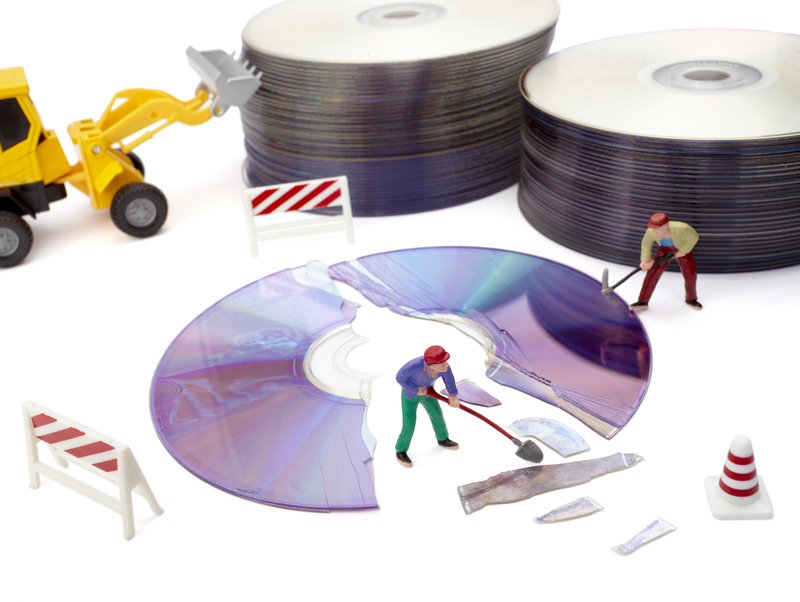Comprehensive Guide to Managing Home Waste
Effective home waste management is a cornerstone of sustainable living, environmental stewardship, and healthier communities. In this comprehensive guide to managing household waste, you'll discover actionable strategies, eco-friendly tips, and important facts to help transform your home into a model of responsible waste disposal. Whether you're a beginner, a seasoned recycler, or aiming to reduce your home's carbon footprint, this in-depth resource will guide you every step of the way.
Understanding Household Waste: Types and Impacts
What Is Household Waste?
Household waste (or domestic waste) refers to the variety of materials discarded from homes during daily activities. These typically include:
- Organic waste (food scraps, yard trimmings)
- Recyclable materials (plastic, glass, paper, metal)
- Hazardous waste (batteries, cleaners, paints, electronics)
- Non-recyclable waste (broken ceramics, certain plastics)
Environmental and Social Implications of Poor Waste Management
Ineffective home waste disposal leads to numerous problems: groundwater contamination, greenhouse gas emissions, and overflowing landfills. By managing your household garbage responsibly, you help mitigate climate change, conserve resources, and promote public health.

Principles of Effective Waste Management at Home
The Waste Hierarchy: Reduce, Reuse, Recycle
The internationally recognized waste hierarchy serves as a blueprint for minimizing environmental impact:
- Reduce: Limit the amount of waste you create in the first place.
- Reuse: Repurpose or donate items before discarding.
- Recycle: Sort materials that can be reprocessed into new products.
Key Benefits of Managing Household Waste
- Environmental Protection: Reducing and properly disposing of home waste helps keep ecosystems healthy.
- Resource Conservation: Recycling helps save energy and raw materials.
- Cost Savings: Reducing waste can lower household expenses.
- Better Community Health: Diminishes pollution and risks related to improper disposal.
Practical Steps for Comprehensive Home Waste Management
1. Set Up a Home Waste Segregation System
Segregating domestic waste is vital for efficient recycling and safe disposal. Equip your home with labeled bins:
- Organic/Biodegradable Waste: Use green bins for food scraps and garden clippings.
- Dry Recyclables: Blue or yellow bins for plastics, cans, paper, cardboard, and glass.
- Non-recyclables: Marked black or gray bins for other trash.
- Hazardous Waste: Separated in secure containers (disposed at special facilities).
Educating your household about which items go where improves compliance and the effectiveness of your home waste management.
2. Reduce Household Waste at the Source
The most sustainable strategy is preventing waste before it's generated. Here's how to efficiently minimize household waste:
- Purchase in bulk: Reduces packaging waste and frequency of buying.
- Avoid single-use products: Opt for reusable bags, water bottles, and containers.
- Plan meals: Lessen food wastage by buying and prepping only what you need.
- Embrace digital receipts and correspondence: Cut down on unnecessary paper waste.
- Choose products with minimal or recyclable packaging: Support brands that use eco-conscious wrapping.
3. Reuse: Making the Most of What You Have
Finding new life for old items is crucial. Creative reuse reduces pressure on landfills and conserves resources. Here are easy ideas:
- Repurpose glass jars as storage or flower vases.
- Turn worn-out clothes into cleaning rags.
- Use both sides of scrap paper for notes or lists.
- Donate gently used items (toys, clothes, appliances) to charity.
4. Mastering Recycling at Home
Recycling home waste is more effective when you follow local guidelines and keep recyclables clean. To enhance your recycling efforts:
- Learn your municipality's rules: Not all plastics or materials are recyclable everywhere.
- Rinse containers: Remove food residue to prevent contamination.
- Flatten cardboard boxes: Saves space and makes processing easier.
- Keep lids and caps on: Check if your local recycler prefers bottles and caps left together.
Never include hazardous materials, plastic bags, or soiled paper in recycling bins unless your community specifically handles them.
5. Composting: Turn Kitchen Waste into Black Gold
Composting organic household waste not only reduces landfill contributions but also creates nutrient-rich soil for gardens. You can compost:
- Fruit and vegetable peels
- Coffee grounds and tea bags
- Eggshells
- Yard waste (leaves, grass clippings)
Avoid composting: Meat, dairy, and fats, as they attract pests and slow the process.
Hazardous Home Waste: Special Considerations
What Counts as Household Hazardous Waste?
- Batteries (alkaline, rechargeable, car)
- Fluorescent bulbs and tube lights
- Pesticides, paints, solvents
- Electronics (phones, laptops, televisions)
- Medications and sharps
Improper disposal of hazardous waste can poison water sources and harm sanitation workers. Always look for scheduled collection days or dedicated drop-off centers in your locality.
Tips for Safe Handling
- Store hazardous materials away from children and pets.
- Never pour chemicals down the drain or in the trash.
- Keep items in original containers when possible.
- Participate in electronic waste recycling drives.
Advanced Strategies for Zero Waste Living
1. Start a Home Waste Audit
Track your daily trash for a week by sorting and weighing each type. This reveals your main sources of waste and highlights areas for improvement.
2. Eco-Friendly Alternatives and Innovations
Upgrade your home's sustainability with these eco-conscious products:
- Compostable bags for organic waste collection
- Reusable beeswax food wraps as a substitute for plastic wrap
- Bamboo toothbrushes instead of plastic
- Refillable cleaning products to reduce packaging
3. Involving Kids and Family in Managing Home Waste
Fostering eco-responsibility in children shapes future habits:
- Make waste separation a fun, educational game.
- Assign recycling "champions" to help enforce bin rules.
- Involve the family in upcycling projects and composting.
The Role of Community in Home Waste Disposal
Engage in Local Initiatives
Support or start neighborhood programs such as:
- Curbside recycling programs
- Bulk trash pickup or swap days
- Community composting hubs
- Local clean-up drives
Advocating for Improved Services
If your community lacks sustainable waste solutions, raise awareness and petition for better facilities, more frequent hazardous waste collections, and educational campaigns. Collaborative action leads to lasting change.

Frequently Asked Questions About Managing Home Waste
Can all plastics be recycled?
No. Plastics are coded by number (1-7), and your local recycling service will advise which codes are accepted. Generally, plastics #1 and #2 (bottles and jugs) are widely recyclable.
What do I do with expired medications?
Never flush them! Take them to pharmacy take-back programs or scheduled drop-off days organized by authorities.
How can small apartments manage waste better?
Use stackable bins, compact composters, and regularly donate items to minimize clutter and ensure efficient apartment waste management.
Is burning trash at home a good idea?
Absolutely not. Burning waste releases toxic pollutants and is illegal in many places.
Conclusion: Building a Responsible Home Waste Management Routine
Implementing a comprehensive home waste management system can seem overwhelming at first, but breaking it down into simple steps--segregation, reduction, reuse, recycling, and composting--makes it manageable and rewarding. Remember, every small effort counts. By developing mindful consumption habits, educating family members, and collaborating with your community, you can significantly reduce your environmental impact and set a powerful example for others.
Together, let's create cleaner homes and a healthier planet--one bag at a time. Adopt a home waste management strategy today and be the change our Earth needs.